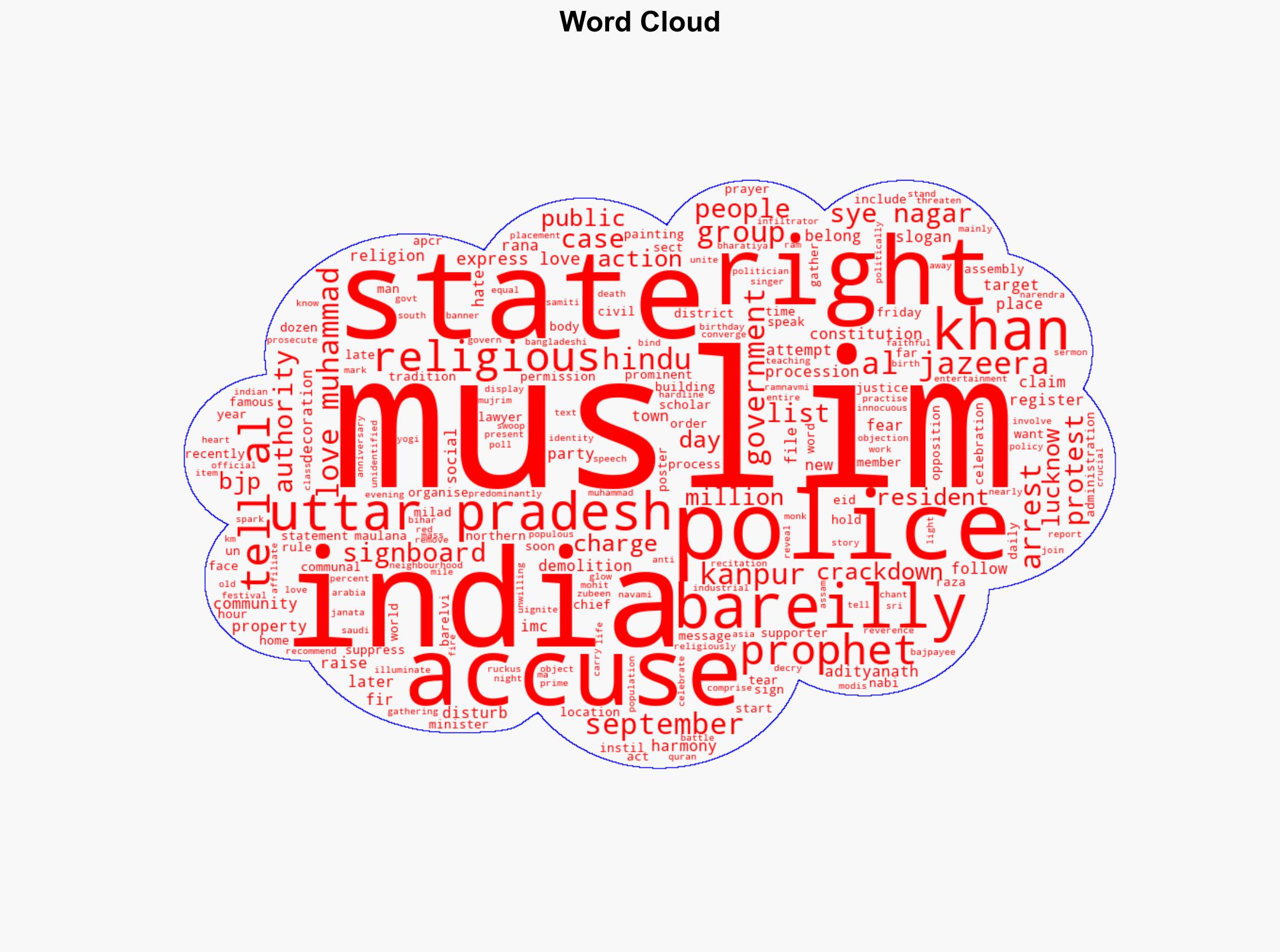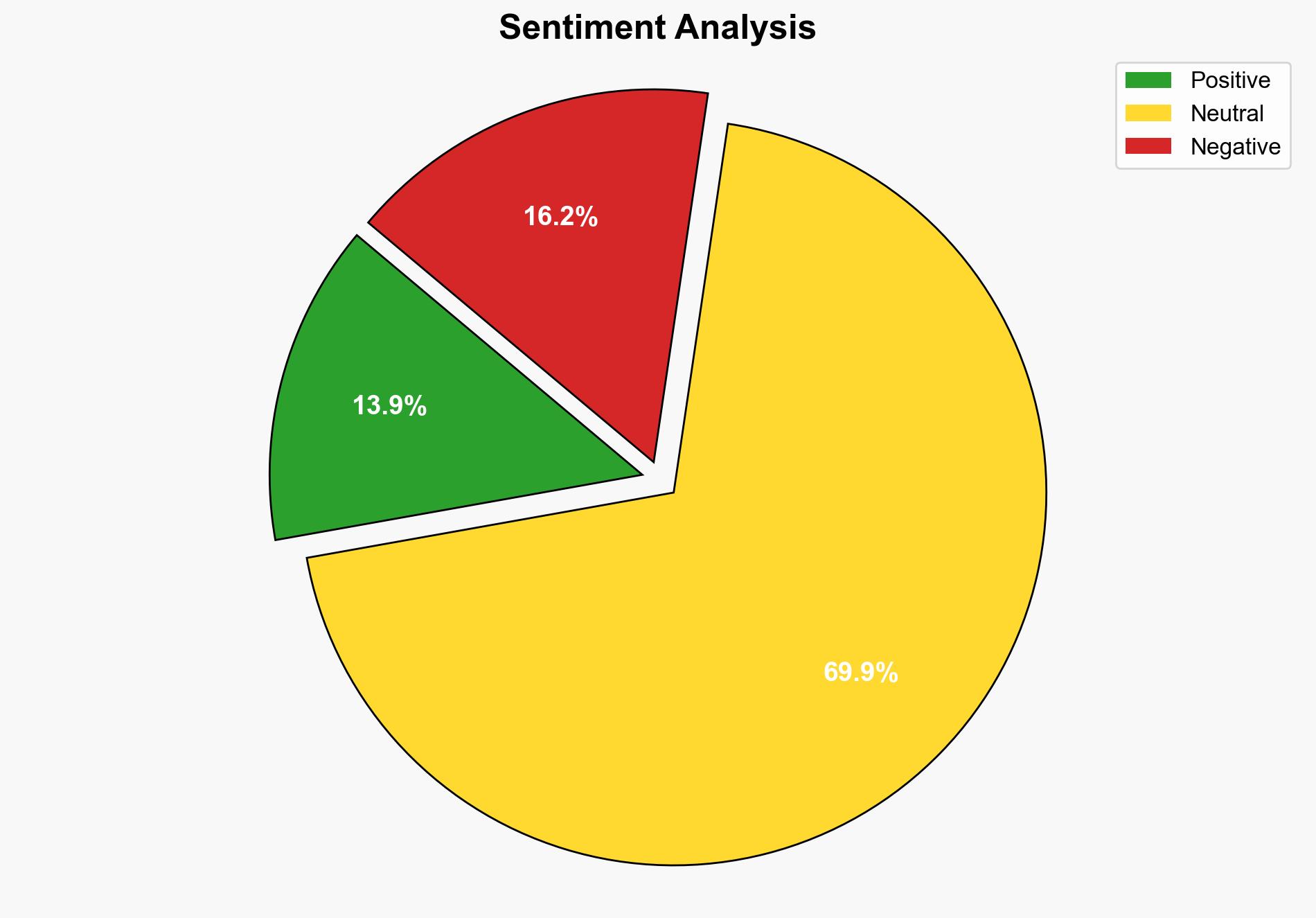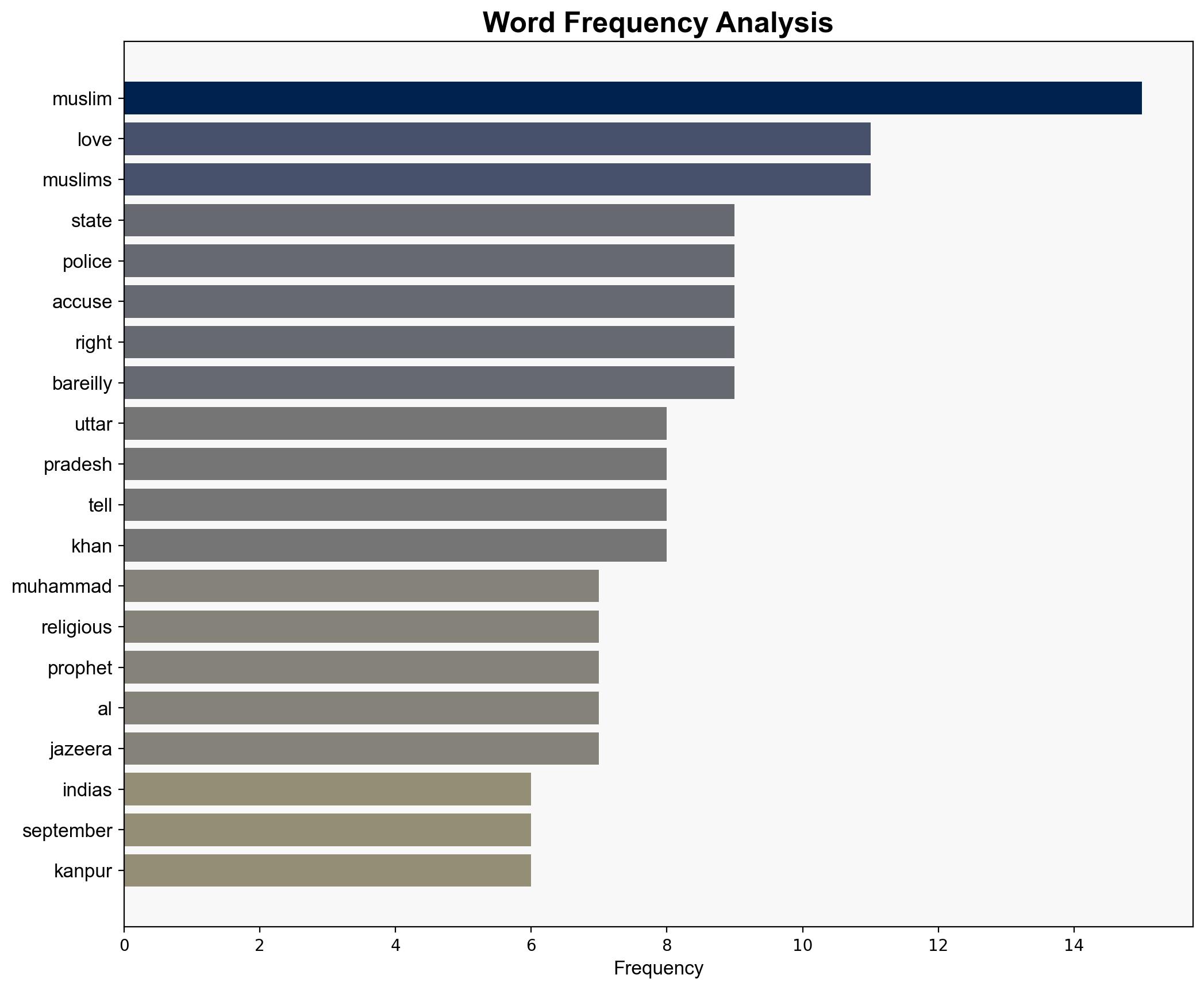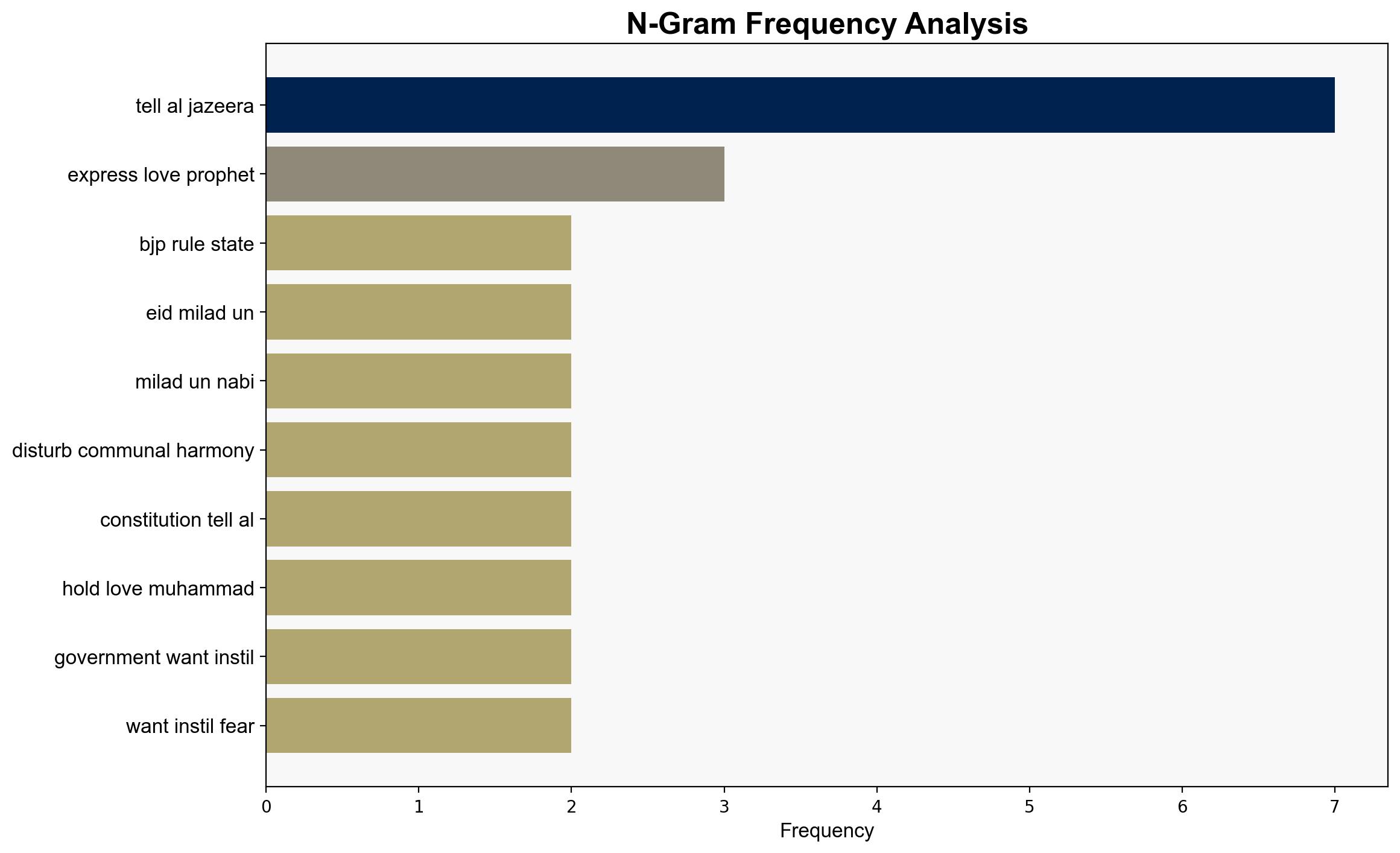Charged for saying I love Muhammad Indias Muslims decry govt crackdown – Al Jazeera English
Published on: 2025-10-21
Intelligence Report: Charged for saying I love Muhammad Indias Muslims decry govt crackdown – Al Jazeera English
1. BLUF (Bottom Line Up Front)
The most supported hypothesis is that the crackdown on Muslims in Uttar Pradesh is a politically motivated action by the ruling party to consolidate its hardline Hindu nationalist base. Confidence Level: Moderate. Recommended action includes diplomatic engagement to address potential human rights concerns and monitoring of communal tensions to prevent escalation.
2. Competing Hypotheses
1. **Hypothesis A**: The crackdown on Muslims in Uttar Pradesh is primarily a law enforcement action aimed at maintaining public order and preventing communal violence.
2. **Hypothesis B**: The crackdown is a politically motivated maneuver by the ruling Bharatiya Janata Party (BJP) to strengthen its support among Hindu nationalists by marginalizing Muslim communities.
**Structured Comparison Using ACH 2.0**:
– **Evidence for Hypothesis A**: The police registered reports (FIRs) citing disturbances to communal harmony, suggesting a focus on maintaining order.
– **Evidence for Hypothesis B**: The involvement of hardline Hindu groups and the political background of Uttar Pradesh’s leadership, known for anti-Muslim rhetoric, supports the idea of political motivation.
Hypothesis B is better supported due to the political context and historical patterns of communal tension being leveraged for electoral gains.
3. Key Assumptions and Red Flags
– **Assumptions**: It is assumed that the police actions are unbiased and solely for public order. Another assumption is that the political leadership’s actions are not influenced by electoral considerations.
– **Red Flags**: The timing of the crackdown around a significant Muslim religious event raises questions about intent. The lack of transparency in police actions and the potential suppression of dissenting voices are concerning.
– **Blind Spots**: The potential for external influences or provocations that could exacerbate tensions is not fully explored.
4. Implications and Strategic Risks
– **Patterns**: The pattern of targeting minority communities during religious events could lead to increased communal polarization.
– **Cascading Threats**: Escalation of communal tensions could result in widespread unrest, impacting regional stability and economic activities.
– **Potential Escalation**: If not addressed, these actions could lead to international condemnation and strain diplomatic relations, particularly with Muslim-majority countries.
5. Recommendations and Outlook
- Engage in diplomatic dialogue with Indian authorities to express concerns over human rights and communal harmony.
- Monitor social media and local communications for signs of escalating tensions or misinformation campaigns.
- Scenario Projections:
– **Best Case**: De-escalation through dialogue and community engagement initiatives.
– **Worst Case**: Widespread communal violence leading to significant loss of life and property.
– **Most Likely**: Continued low-level tensions with periodic flare-ups around religious events.
6. Key Individuals and Entities
– Yogi Adityanath
– Mohit Bajpayee
– Maulana Tauqeer Raza Khan
– Bharatiya Janata Party (BJP)
– Sri Ramnavmi Samiti
– Ittehad Millat Council (IMC)
7. Thematic Tags
national security threats, communal tensions, political strategy, human rights, regional stability





